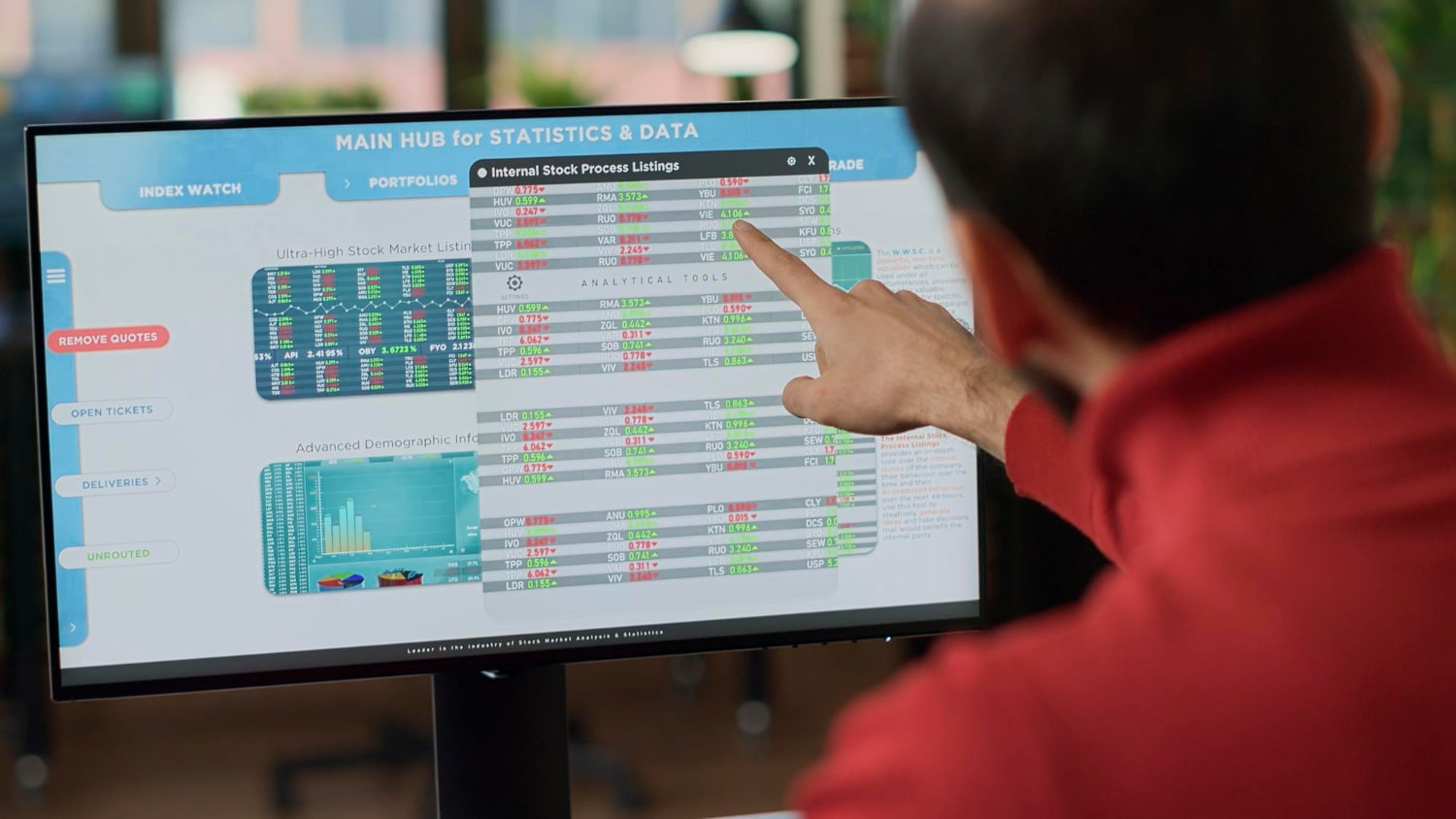It’s difficult to overstate the importance of the right technology for your craft beverage business. You might only have the resources to hire a small team, but technology allows you to make the most of what you have in an increasingly competitive industry.
“Brewery software gives the craft market a leg up against the larger, more entrenched beverage companies,” notes Josh McKinney, Ekos CEO and co-founder. “If it makes your team more efficient so you can spend more time with customers or on differentiating your brand in the market, then it is time and money well spent.”
7 Tips for Choosing a Brewery Software Solution
Determining your need to invest in brewery software is only the start. Next comes finding the right vendor. Armed with some solid tips for how you can determine who the right partner might be, along with some questions you can ask to maximize your chances of finding the ideal platform, you can evaluate your options and make the decisions that drive your business forward.
Tip #1: Commit to Improving Your Business Processes
Take inventory of your current business processes and how effective they are. Do you have the data you need at your fingertips, when you need it? Is your inventory tracking always complete and accurate? Is your team trained with best practices and industry standards to ensure smooth, reliable operations that you can stand behind? If not, prioritize the changes you’ll need to make to improve and grow your business. Be prepared to dig for a platform that can transform all of your essential tracking and reporting elements, streamlining your processes and keeping your business ahead of the curve.
Tip #2: Define Your Platform Needs and Goals
As with any strategic effort, you must begin by outlining exactly why you need the platform to begin with—and what goals it needs to accomplish for your brewery. For example, if you’re looking for inventory software, are you trying to get more organized or communicate better with your team? Keep more accurate records? Sync inventory transactions with your accounting software to save time?
Depending on the answer to these questions, the right brewery software for you may vary. That’s what makes nailing down your goal such a crucial component in figuring out what features the tech solution you’re looking for should have.
Tip #3: Align Your Vendor Search with Your Goals
With your desired outcomes in mind, it’s time to evaluate vendors to determine how effectively they can help. Once you’ve reviewed basic marketing materials to get an idea of what the brewery software offers, be sure to set up a demo so you can see what the product looks like and how it works. But remember: no solution will be 100% perfect. Prioritize your top features and make sure the vendor checks off the most important boxes.
Related: How the Right Brewery Management System Saves You Time
Depending on your specific needs, some general categories to consider include:
- Analytics, reporting, and business intelligence capabilities
- Methods for accessing the platform (look for a cloud-based system)
- Integrations with other software you’re already using
External sites like G2 and Capterra can also help you evaluate your software options.
Tip #4: Set Your Budget to Align with the “All-In” Cost of the Platform
Using technology to solve problems costs money, but fitting it into your budget is possible as long as you know the true cost. Of course, most software-as-a-service (SaaS) companies will charge a subscription fee, but make sure you ask for all other associated costs.
For example, does the company charge you for each additional user? Do they charge for an eCommerce or POS system? What are their website hosting or credit card processing fees? The hidden costs of SaaS platforms can be significant if you’re not careful in your research.
At the same time, it’s important to remember that a cheap solution is often just that—cheap. Instead of trying to find a cut-rate option, simply decide how much you can afford to spend and add it to your list of considerations as you evaluate vendors.
When evaluating costs, keep in mind the time your brewery software can save, as well. Costs matter, but only when evaluated against both time and budget savings of implementing it.
Tip #5: Focus on Vendors Familiar with the Brewery Industry
Many craft beverage businesses have found out the hard way that big software companies cater to enterprise clients and are often ill-equipped to handle the needs of a craft brewery, winery, or cidery. Sure, they’ll tell you their platform can be used for anything—which really means the platform is generic with few (if any) features that are specific to craft beverage producers.
Instead, any vendors you evaluate have to be familiar with your situation and environment.. Technology can be a massive benefit for your brewery, but only if it focuses on the unique needs craft breweries like yours face.
Frankly, you’ll likely struggle to get hands-on support when you’re competing for attention against companies with multi-million-dollar, or even billion-dollar, annual revenues. Ask vendors if they are well-versed in working with businesses of your size and type—but you’ll probably be able to tell quickly just based on their industry knowledge (or lack thereof).
Tip #6: Investigate Your Customer Support Options and Fees
Another important factor to consider is the types of support the vendor makes available. Ideally, you’ll have the option of online and phone support in addition to a database of help articles. Make sure you understand the support packages and choose one that makes sense for your team.
Also, consider whether you get hands-on onboarding and training (with a real person) as a new customer, and look for signs of the company’s overall commitment to customer service. Will you have to wait a week for a response to a support ticket? If you have a problem during off-hours, is there a robust database of support articles for you to reference? What about ways to give product feedback? Ask these questions as you research and talk with potential vendors.
Tip #7: Talk to Your Peers and Ask for Customer References
In addition to the above, talking to peers and getting customer references can provide valuable information that will help you with your software decisions. Most brewery vendors will be happy to supply you with those references, but you can also start by asking other brewery owners and managers about the software they use.
Related: Ekos Reviews
This one’s a no-brainer, but if a company can’t offer references within your industry, you might want to look elsewhere. Ask the vendor to provide references that are as similar to your business as possible, so you can properly compare.
Questions to Ask Potential Brewery Software Vendors
While additional questions may come up, there are some basic questions you’ll definitely want answers to as you evaluate your options. Below are some of these basic—and important—questions, alongside some additional context for each.
How will your software achieve our business goals?
Look for answers that revolve around specific issues that their platform can help you solve. For example, better inventory management or record-keeping can help you build efficiencies, while better brewery analytics can help you identify and fix weaknesses in your brewing process.
How do you work with your brewery clients?
Ideally, your new brewery software becomes a partnership with your vendor. While you rely on consistent and strategic support, the vendor can benefit from your feedback to improve the platform over time. This mutually beneficial relationship is a vital piece of finding the right software.
Can you discuss your customer service approach?
This question digs deeper into the previous one, setting expectations for the relationship with your vendor. Where one focuses largely on the strategic aspects of the partnership, answers to these questions can help you get specific commitments from the vendor on what the partnership will look like.
Can you describe your own mission and key company goals?
This question is especially important for craft breweries, which tend to have unique business needs that are distinct from most other industries. Mission alignment can help make sure that the software you choose fulfills the larger goals and priorities you have for business growth and success.
What if I need another vendor down the road?
Even the most thorough research might not provide you with the best possible option. And even if it does, your business will likely continue to evolve over time. Knowing what will happen should you look for another vendor provides flexibility for your business, both now and in the future. You can also ask more specifically about the cancellation process and how data can transfer back out of the software.
Great answers to the above questions will give you a strong idea about whether you’re on the right track to the brewery software you need. The software that aligns with your business needs and checks the most boxes will probably be your best choice. Here are a few additional questions you may want to have at the ready:
- What happens if/when challenges arise? How do you handle conflict?
- Knowing my needs, what is the “all-in” cost of using your software?
- Is my business type and size typical for your client base?
- Is your brewery software easy to use on a mobile device?
- How easy is it to get support? Does it cost anything?
Ultimately, your brewery software should be a core tool for you to improve efficiencies, save time, and optimize your operations. These tips and questions can help you get there, ensuring a successful transition into a more technology-oriented management system designed to bring your brewery operations into the future.To learn more about the tech solutions craft makers rely on, download Building a Tech Stack: An Analysis of Breweries and Cideries and get insights from 1,500 craft producers.
“How will your software help achieve our goals? Make sure the brewery software you select will help you fulfill your company mission and crush your goals.”
“What is your commitment to service? Get specific commitments/promises rather than generalities if possible (turnaround times, answering emails/support tickets, dealing with issues/complaints, etc.).”
– Nancy Trigg, Arryved



